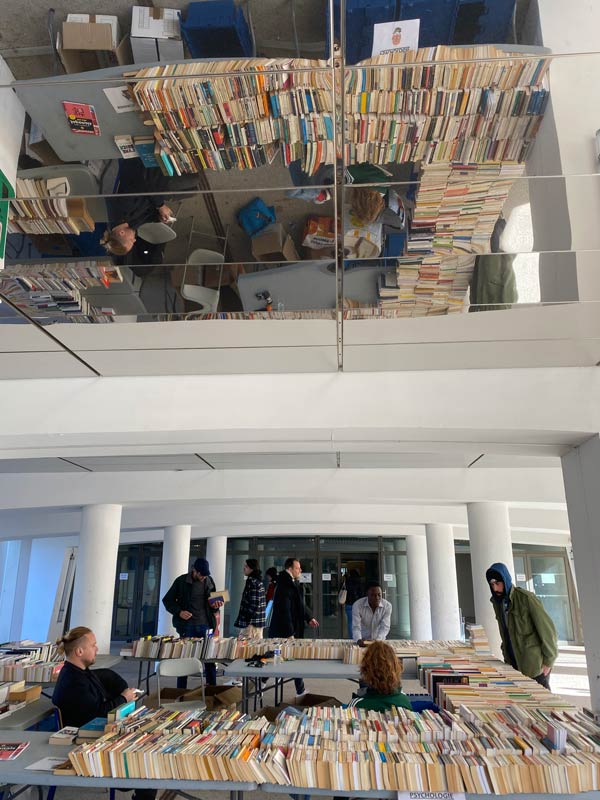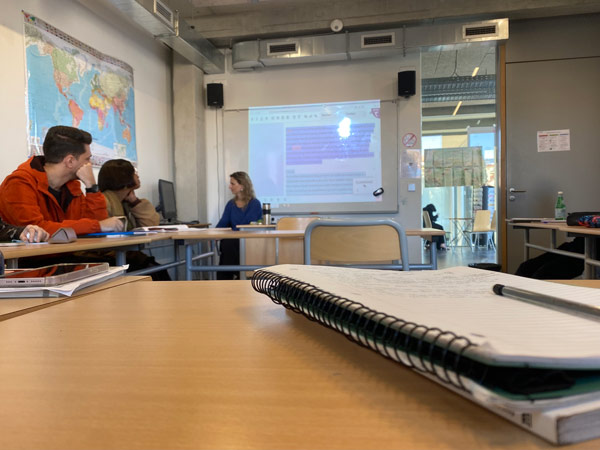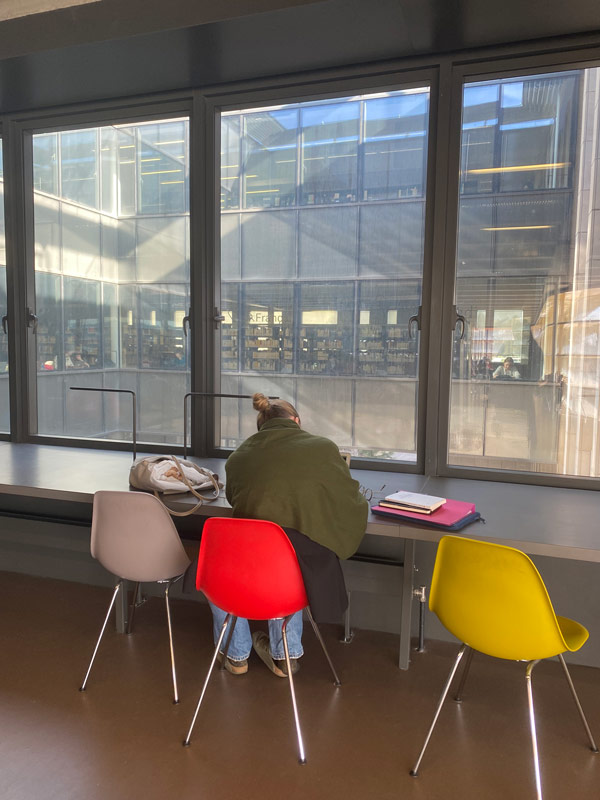What I Didn’t Know About Studying Abroad at a French University
Encountering Differences in Higher Education Across Countries
I attended a French university during my CEA CAPA study abroad program and walking into it, I really didn’t know it'd be different from a university in the United States. Turns out, it is! So, I’m here to share a little about what to expect and what life looks like when attending a French university.
It’s a good idea to mention that through all the differences encountered in a university abroad, CEA CAPA is supportive. They facilitated a large part of my enrollment process, which I imagine would have been complex on my own. My program coordinators in Aix-en-Provence also ran through a helpful orientation segment introducing what French university is like, and they remained available to offer support.
My Day-to-Day at AMU
To tell you a little about my situation: Hello! I studied abroad for a semester at Aix-Marseille University in an immersive French language learning program called SUL (Service Universitaire des Langues). I had classes four days a week (though it’s possible to have a five-day schedule) which were taught entirely in French and focused on varying subjects. Campus was about a 20-minute walk from my apartment and my classes were usually 4-6 hours of my day, with a lunch break in between.
Because Aix-Marseille University is a French university, I was surrounded by French and international students every day with French as our common language connecting us. SUL is a smaller portion of the university where all the students are learning French, but we equally participate in the French style of university and in university life.

The Student Languages building at AMU! This is where my classes are held and I’m very fond of this space.
Helpful Information Going into A French University
Formality:
In French culture, many everyday aspects of life are treated with a little more formality than in the U.S., and education is no exception. In some ways university there could be compared to how we regard a 9-5 job in the U.S.: dress well, be punctual, respect the work that you’re doing and the people you work with.
I was surprised to learn that relationships with professors in France usually remain very formal and distant throughout the time that you spend in their courses. This semester I had very kind and progressive professors that don’t fully fit this stereotype, but it’s helpful to keep in mind that French professors can ask for respect and compliance with their teaching methods, and the university will support the professor’s style of running their class. Through student interactions, feel free to express your feelings and joke around in an informal manner, but in staff interactions use polite language and maintain a professional attitude.

My book bag after a full day of classes and grocery shopping on the way home. It made me laugh so I wanted to share.
Grading System:
France doesn’t use a grading system out of 100% but instead out of 20; crazy, right? An A is considered an 18-20 on their grading scale and students must receive an overall 10 to pass a class. Not only was this an interesting change to adjust to, but I also discovered that it’s rare and considered truly exceptional to receive an A. One of my professors recently returned an assignment to me as a 14/20, which was initially disheartening as that’s a C letter grade, but her note beside the grade read “good work!” From my growing understanding, receiving a B or C is still a positively regarded grade that indicates you’re putting in the work and understanding class content; an A indicates that your work is outstanding and without faults.

An outdoor multilingual book market that takes place on campus Mondays and Tuesdays!
Class Layouts:
My biggest adjustment to French university was in how classes were structured. As opposed to U.S. universities, classes in France are on average about three hours long, with a 10–15-minute break in between. Surprisingly these courses didn't feel like they dragged on, and the professors did an excellent job at filling the hours with well-planned class content, but it’s still an attention span adjustment.
I was also surprised to discover that there’s a stricter class absence policy here, where the only excused absence is a doctor’s note, and after three missed classes, the course is automatically failed. To be fair, missing three hours of content is a lot to try to catch back up on, so it’s good to keep in mind that the expectation is to show up to class.
Class atmospheres there were awesome, but there are some notable differences such as class size, in-class conduct, and engagement. The courses offered through the program I took ranged between 10 and 20 in class size, but leaned towards the lower end of that scale. Every professor conducts their classes in different ways, but generally the courses are interactive and expect participation, so you do get to know the people in these intimate little classes. Eating in class is frowned upon, which I rarely find to be the case in the U.S., but is probably associated with the high level of class engagement and respecting the formality of an educational atmosphere. Overall every one of my professors is open to answering questions or re-explaining a concept, which I found invaluable, so ask your questions!

Editing French stories we wrote in class. This photo shows the closeness of our classes, consisting of about 15 people.
Summing It Up
The French university experience was a lovely educational journey, but also a cultural experience which I genuinely benefited from. In pointing out so many of the differences between the U.S. and France’s university systems, I’d like to also voice the reminder that differences do not equate to negative changes. I hope that I’ve shed some light on what to expect walking into a French university study experience but remain open to what your own individual experience could be too!

Studying at the beautiful Arts and Humanities Library.











